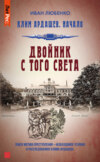Читать книгу: «Melina Breaking Free»
Dimitra Mantheakis
Melina Breaking Free
A true story
Dieses ebook wurde erstellt bei
Inhaltsverzeichnis
Titel
Melina Breaking Free
Preface
CHAPTER 1
CHAPTER 2
CHAPTER 3
CHAPTER 4
CHAPTER 5
CHAPTER 6
CHAPTER 7
CHAPTER 8
CHAPTER 9 - SARANTOS
CHAPTER 10 - DINA AND PAULINA
CHAPTER 11 - MARY
CHAPTER 12
CHAPTER 13 - SOFIA
CHAPTER 14 - IAKOVOS
CHAPTER 15 - URANIA
CHAPTER 16
CHAPTER 17 - PAULINA
CHAPTER 18
CHAPTER 19 - MELINA
CHAPTER 20
CHAPTER 21
CHAPTER 22
EPILOGUE
Impressum neobooks
Melina Breaking Free
Melina Breaking Free
based on a true story
by
Dimitra Mantheakis
Dimitra Mantheakis is one of the most prominent and gifted writers in Greece today. She grew up in Sparta and attended Athens University where she studied literature and archaeology. Her international best-seller I, the Taliban’s Wife has been translated into three languages and was on the best seller lists in Germany for many months.
Melina Breaking Free is her seventh book, an acclaimed example of modern Greek literature, and the first to be translated into English. Dimitra Mantheakis lives in Athens with her husband, Alexis Mantheakis, an author and political analyst. They have a daughter who is a journalist.
Preface
1950’s. In a small isolated Greek provincial town in post-Civil War Greece a closely-knit group of young friends - Melina, Sarantos, Iakovos, Sofia, Mary, Urania and Paulina - will discover that behind the curtain of strict morality and social righteousness their fellow villagers’ passions are boiling over and there are hidden secrets. As they grow older the young protagonists will pass from innocence to an awakening of the flesh with these sexual experiences indelibly marking their lives. They come to realise that sex is not only pleasure but hides numerous disappointments and pitfalls when games of sensuality also involve the heart. Shattered dreams, abandonment, exploitation and callousness lie ahead for the newly-initiated youths and girls as they are called on to handle each new situation according to their character and beliefs. Will they be able to overcome unforeseen obstacles in their struggle or will they be swept away by what appears to be written for each of them by Fate?
Loves that last for a lifetime, hatreds, passions, sex steeped in infinite sensuality, deep disappointments and a search for redemption are interwoven in the telling of this tale of awakening desire. Reading Dimitra Mantheakis’ latest book will perhaps make the reader recall their own first stirrings of the flesh and have them identify with the sentiments and experiences of the young protagonists.
CHAPTER 1
1950’s. The pale light of the winter morning illuminated the small provincial town wedged in the embrace of the valley whose dark green foliage and dense humble bushes still held onto the previous night’s rain. The two mountains, one to the left and the other to the right, appeared to be hugging the houses, roads and orchards below them in an embrace of stone. One mountain, almost vertical, rose up darkly, menacingly, totally stripped of vegetation with its back bent as if hunched over, kneeling in prayer. Depending on the play of the sun’s rays the strange colour of its rocks and its crevasses made up of precipitous gorges one moment were blue and the next grey, and black in their depths. The other mountain, lying sensuously on the horizon and covered with dense vegetation sucked life from the red earth that covered it like a mother who would never deprive her suckling children of her breast, reminding everyone that it would not stop nourishing its children, the trees and plants,.
And in the distance, the sea. Restless, a traveler, greedily licking the white pebbles on the shoreline, covering them with seaweed juices and the taste of salt, and then withdrawing, sated, in a light swell that crashed noisily on the weathered rocks of the two headlands.
A frosty breeze slid over the red tiled roofs, rhythmically slamming the half-open window shutters and quietly whispering secrets hidden behind the frozen window panes to the wide open ears of fireplaces, and they, in turn replied with a puff of smoke and a promise not to cave into to temptation and disclose any of these revelations.
The small town was almost totally cut off from the rest of the world. A solid mass of age-old rock exactly at the point where the two mountains met each other, blocking the entrance to the interior. The narrow snakelike road that climbed up over this hard physical barrier didn’t offer an easy way of escape. Cars struggled up the steep inclines, gasping round dangerous curves, disappearing in dry stifling clouds of dust in the summer, while in winter they crept at a tortoise-like pace so as not to slip off the road surface and tumble into the gaping chasms, and this of course when the road was not completely blocked by snow which often turned into ice, a cunning deathtrap for those not properly taking the hazard into account.
To the south where the valley reached out towards the sea, the exit to the outer world was limited to short trips in small fishing boats. The diminutive cove did not have a respectable harbor to receive larger vessels and give the town a chance to develop.
The townspeople had become used to their isolation. Many of them had never gone beyond the rock border while the older ones among them had no desire to do so. Most learned what was going on from those who bought two-day-old newspapers or from the radio at the café, or at the house of some citizen fortunate enough to be able to afford a wireless set. Their favourite pastime was learning about the lives of others. They wanted to know every detail about what was happening in their neighbours’ houses; their curiosity focused primarily on gossip and only rarely was there a real interest in the troubles of their fellow villagers.
Whenever a scandal, according to their concept of one, became known, and before news of it had travelled as far as the café, it had already become a monstrous issue. Tongues wagged, analyzing the incident at length, dissecting with their criticism the person who was unfortunate enough not to have effectively protected their personal affairs. But how could anyone do this when everyone’s eyes and ears were focused on everyone else, and no voice, no whisper, no movement was able to escape the attention of someone, anyone, who, with newly acquired information in hand immediately rushed to broadcast the news to an audience voraciously standing by to receive and spread the word? Thus every situation was common knowledge even though some people had the illusion that the armour they wore over their personal life was without chinks and leaks.
The bell sounded at the old primary school, breaking the total silence that reigned in its classrooms. The pupils jumped up, as if on springs, and poured noisily out into the schoolyard. The pupils in Grade Six who had just finished the February written exam did the same. Several of them went out with an expression of intense dissatisfaction, two or three were crying because they had been unable to respond to the demands of the exam and were shivering in fear at the prospect of their parents’ reaction, but for some others, their small faces glowed happily. They had managed to once again do well in the difficult last term exam.
A group of children broke away from the crowd and sat on a stone ledge. They were children who had been friends from their first year at primary school and who were always together at every juncture of their lives, good or bad. Urania, Mary, Sofia, Paulina, Dina, Iakovos, Melina and Sarantos.
Urania, the headmaster’s daughter, was a dark, precociously developed girl whose interests were school, church and Sunday school. She never left her home alone and her friends had to visit her when her strict father allowed it only at her house. Paulina, the daughter of a nurse, had lost her father when she was five, and her mother struggled to support her and her two younger sisters. Melina, with chestnut hair and huge marsh-green eyes, skinny as a rake from privations caused by her cart-driver father being unable to earn a daily living wage, now shivered as usual because of the cold; her hand-knit woolen pullover unable to warm her. Her family did not have enough money at home to buy overcoats or even a long warm cardigan.
The young girl tried to warm herself by rubbing her hands together, but this was not sufficient to stop icy tremors from running up her spine or to stop her teeth chattering. She looked with a measure of envy at Urania’s snug coat and the other girls’ long thick jackets and wished that she too could have had something similar to wear. The boy sitting next to her, Sarantos, took off his old windcheater and tried to put it over her shoulders, but Melina, reacting with pride, gave it back saying she did not want it because she was not cold, an excuse that was patently false and foolish. Everyone could see that she was frozen to the bone.
Sarantos was a tall, thin lad, with thick dark blond hair and large melancholic eyes. His father too had difficulty feeding his family with the produce from his field. His meager peasant farm income was eroded first by floods, then by frost, and finally by drought. If it hadn’t been for the olive trees that took care of their annual requirement for oil and olives, taking care of a small part of their living expenses, the family would surely have died of starvation.
Sarantos’ friend, Iakovos, short and bow-legged, chestnut haired, with a wild unruly mop that reminded one of a bush, twittered, as always, with a permanent smile on his lips, as if life had given him all the bounty in the world. Cunning and mentally agile, in spite of his young age, he would always find a way round any obstacle. His father’s humble hole-in-the-wall shop and its penurious income were never enough to suppress his optimism. Only from time to time would one discern an occasional shadow passing over his eyes to reflect some new worry gnawing at his entrails. He usually drove these thoughts away quickly by uttering some nonsensical comment or by teasing the girls present so that the others would not notice his inner pain.
Dina, dark-complexioned as a gypsy, was an exotic beauty with her almond-shaped eyes and raven black hair; she was taciturn, only taking part in the children’s conversation when it was absolutely necessary. Her father’s taxi managed, to date, to support the family by being on hire even during winter’s cutbacks when customers became few and far between owing to the bitter cold.
Mary, red-haired, with pretty features, already had the makings of a future beauty. Sweet-mannered and retiring, but only superficially so, was well-dressed because her aunt who had emigrated to America sent clothes for her sister’s children. Her elegant and confident bearing made her stand out from the other primary school children. Her father who was the owner of the provincial town’s only pharmacy managed better than his fellow citizens because of the dollars sent every month without fail by his sweet-natured and generous sister-in-law.
The members of the young group were the elite of their school’s class since all of them were top students. The rest of the class had nicknamed them ‘the Gang’ because whatever they did they always did it together, whether this was to achieve distinction in their exams, winning at sports or even when indulging in just some minor mischief as if there was a contract that bound them to act as one.
Today, in a difficult math’s exam, they had perfect scores as they discovered when cross-referencing their answers after leaving their classroom.
“What a pity that these weren’t June’s exams!” said Iakovos. “We would be done, and in four months we would be in high school!”
“Mind you, the four months remaining until the school year is over will be gone before you know it!” said Melina, and the others agreed.
“Let’s go home and have a bite to eat!” suggested Urania whose appetite was legendary. “I’m starving!”
They started off home, dropping off their fellow schoolmates at their houses, one by one. Sarantos was last since his house was on the edge of town in an isolated spot. When the children referred to high school he felt his stomach tighten. He didn’t know how his father would take it if he mentioned that he too wanted to attend since his father kept telling Sarantos he needed hands to help in the fields and that education, for them, was a superfluous luxury because they could not afford to pay labourers to help them in the field. He would have to talk to his father, to prepare him from now and tell him he wanted to go to high school and later to university. He trembled at the thought of his father’s reaction, knowing his views on the subject, but Sarantos was determined to face up to him, come Hell or High Water. He opened the outer gate whose rusted hinges screeched like the angry cry of a cat and he went in.
“Each time he says he will fix the hinges but he does nothing!” the young boy thought, angry at his father for his negligence. The smell of oregano, mint and lavender that his mother had planted in the pots placed in the protected lee of the whitewashed garden wall filled his nostrils. He enjoyed being welcomed by the mixed herb scents because they gave him a sense of belonging, as if they were greeting him in their own way because they recognised him. He walked towards the front door and put the heavy iron key that he removed from the large stone on the right of the entrance into the keyhole. He opened the door, but suddenly stopped. He heard a noise above, as if something was breaking. Then he heard voices, interspersed with the sound of someone quietly crying. The sounds were coming from his parents’ bedroom. The loud, angry voice was his father’s, and the sobbing sounds were from his mother.
“He’s drunk again!” the boy thought bitterly as he stood motionless next to the ancient staircase. The interspersed voices continued for a while. Then silence. A door was slammed shut and his father, pulling up his trousers, appeared at the top of the stairs. He stood there for while, lit a cigarette, and slowly, deliberately, started descending the steps like a man with cramp in his legs. A strong smell of wine permeated the air as if someone had opened a barrel of spirit.
With an expression of disgust Sarantos retired to a dark niche in order not to be seen and fixed his eyes on his father’s outline. Mitsos, tall, light-complexioned, heavily built, somewhat unwieldy at forty three, mercurial and changeable, had deep wrinkles furrowing his brow with prominent veins standing out on his temples and a hooked nose. The scattered red blemishes around his eyes, a result of his alcohol consumption, crooked and tobacco-stained teeth set in a wide sensual mouth that was fleshy, like that of a woman, were witness to the kind of life he led. But his portrait, without a description of his eyes, would be incomplete. Mitsos had the heartless eyes of a man indifferent to those who loved him; they were light blue with a penetrating chill that reflected his inner coldness. His cold gaze betrayed an intense flow of energy that made known his desires and commands. He was a person who was difficult to stand up to and it was easier said than done to refuse to carry out his orders. Was it fear, was it respect or the timidity of the weaker in the presence of a stronger party, or all together, Sarantos did not know. What he did know was that he feared his father and was unable to confront him without aggravating the situation, whether he approached him gently or by raising his small stature in defiance to demand the obvious.
When Sarantos heard the iron garden door closing he ran up the steps and stood under the eve of the open bedroom door with the broken lock that however much his father took to slamming it shut the wooden door would always open again, exposing the interior of the room. His mother was standing next to the edge of the bed fixing her petticoat trying at the same time to tie the belt cord of her dressing gown with which she had tried to cover herself, without success. She turned round and looked at her first-born son. Her expression was one of weariness and despondence; her face was drawn, pale, her full lips trembling, something she tried to hide by biting them when she saw the young boy. Her eyes were wide open and there was a tear on the edge of her long lashes that she clumsily tried to wipe away. The gentle expression of her brown eyes fixed itself on Sarantos’ figure. Her look had the inner light that in some people is bestowed as a gift; a light that despite all the conflicts, disappointments and travails, there are those who in a strange manner manage to keep it going as if this inner flame was kept permanently alight by their soul.
The woman’s look validated the common expression that the eye is the window of the soul and Eleni’s soul was her children, a great source of motivating power that gave her the strength to be patient and to endure; to put up with her drunken husband whose unbridled sexuality tortured her and had become an unbearable yoke. She was unable to struggle against him to resist his constant sexual attacks. His mind, made irrational by wine, didn’t respond to her pleading. “Please, no, the children…!” Nor was he put off by her weak hands’ efforts to restrain him. In his condition her efforts to bring him to his senses, to shame him, were in vain. And yet she had married this man because she had fallen madly in love with him causing a huge rift with her teacher-father and her relatives who couldn’t fathom how the educated only-daughter could find common ground with the rough farmer, even with his, then, masculine good looks. Eleni had carefully hidden her worries from everyone so that she would not hear them say “We told you so, but you knew better”. Her pride had forced her to justify her choice and not to give the others the right to pressure her to take a decision that was, for her, not an option. She didn’t want to be the “town divorcee with three children”, an easy and permanent target for the gossips frequenting the cafés and other gathering places.
From the moment she failed to exercise iron discipline to prevent her companion from taking a second drink after the first one, and after the second, a third, a fourth, and so on, she had to pay for her inability to make a stand against him. Things did not change for her as the years went by. The situation remained the same, with the additional element of an explosion of extreme aggressiveness by her husband whenever she had even the slightest objection to his pressing sexual passion. Thus she swallowed her humiliation, again and again as she was turned into a sexual object, without her consent, without her willing involvement, wounded, feeling cheap and humiliated that the father of her children chose to completely ignore her own desires, her own beliefs, in order to satisfy his insatiable physical appetite. In order to overcome her embarrassment now Eleni started to compulsively clean non-existent dust from the icon of the Virgin Mary in the wall niche. Sarantos felt swamped by a wave of pity. He felt tenderness, a sensation of warmth for his mother Eleni interwoven with love and affection, raising the temperature of every molecule in his body, just as it did when he burned with frustration and anger whenever he overheard the conflicts taking place behind the closed bedroom door. Mother and son looked at one another without saying a word to break the silence in the room, and Sarantos was so wound up by the tension of the anger that fed his desire to do something, anything, to drive out the sadness from his mother’s eyes that his nails, clenched tight in his fists, bloodied his palms without his feeling anything as if this same silence with its pervading presence had contained the rhythm of his outburst. As his mother stood motionless the slanted rays of light that came in from the window made her face appear radiant, and she was so beautiful, despite her sadness and the shame in her eyes, that Sarantos froze in admiration and also in empathy. How could this woman with the angelic profile endure from the time that the boy could remember himself, this unpleasant situation, not reacting, not leaving his father, to find peace and tranquility? These unanswered questions constantly tormented his thoughts and only resulted in causing him permanent agony and stress.
His mother approached him, took his hand, lifting it to her face and pressing it gently against her still wet cheeks to wipe away her tears. Then she embraced him and stroked his unruly hair. They both sat down without speaking on the disordered bed, holding each other’s hand, looking at the objects around them, the mirror, the side table, the table under the window and the glass of water; objects to which the midday light’s play gave a magic dimension as its rays gently touched them. The smooth passing of day’s bright light into the evening’s shadows imbued them with a sensation of an illusion that the gloom of night would hide their secrets, thrusting them into obscure corners, invisible to everyone, corners that nobody would see or discover. They both daydreamed that they were gradually leaving themselves behind to go to another place where something else was waiting for them. The place to which they went was empty and bare, but it was their place of truth, it was their reality - a field of silence, uncultivated, profound, deeper still than their dream of escape which in the end didn’t offer them a way out but acted to strengthen their fortitude and bond.
The companionship of mother and son was able to lift them clear of the impasse, albeit temporarily, and to mitigate the harsh impressions on the person experiencing them and the person who was often the witness. They stood up, still clasping each others’ hand, perfectly synchronized, and squeezed together they descended the staircase to go into the kitchen. Huddled next to the lit fireplace Sarantos two young sisters looked at them with the wisdom of the whole world in their childish eyes. Their mother placed a kiss on each of their foreheads and, late now, started to lay the table. In order to change the mood Sarantos asked his mother “What happened with the school matter, Mother? I want to go to high school. Will you tell him to let me attend? I don’t want to spend my whole life working in the fields!”
His mother looked at him and said “You know your father and how stubborn he is. I promise you though that I’ll do what I can to change his mind. Decisions in this house, Sarantos, are not up to me, but I will try.”
Eleni then filled bowls with steaming hot lentil soup, took some olives out of an earthenware jar, cut several strips of salted tunny fish in oil, and, putting a small wicker basket with freshly baked bread on the table she sat to eat with her children, despite having no desire to consume anything.
































